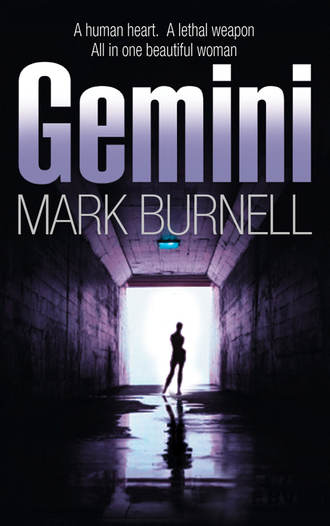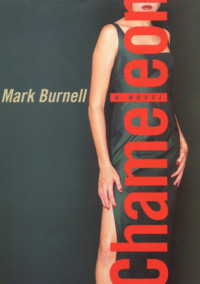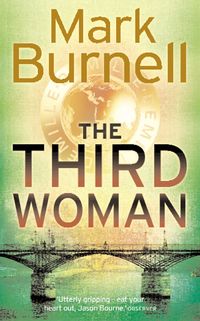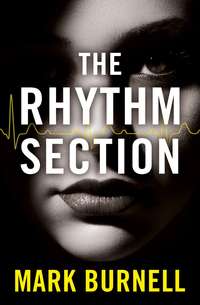
Полная версия
Gemini
I know it’s crazy to see Mark, but Alexander should consider the alternative. Mark gives me stability. Through him I’ve made friends; normal people living normal lives coloured by normal concerns. They have become an emotional cushion that makes it easier for me to continue to do what I do for Alexander at Magenta House.
Last night, after too many drinks at the Cunninghams’ house in Clapham, we played the Kevin Bacon game. This is a movie version of the Six Degrees of Separation theory, which suggests you can connect any two people in the world in six moves. It occurs to me that there could easily be a Stephanie Patrick game. I can play Six Degrees of Separation without ever having to leave my own skin.
After a four-hour debriefing Stephanie went to her own flat, a third-floor walk-up on Maclise Road with a view of the rear of the Olympia exhibition centre. There was mail on the floor, dust in the air, nothing in the fridge. She opened several windows but there was no breeze to counter the humid heat. Then she checked the sensors: two micro-cameras, one in the living room, one in the bedroom, connected to an exterior base-unit that sent a coded message to her desktop. The cameras were activated by movement, the sensors detecting changes in air temperature and density. She’d bought the equipment from Ali Metin, a Turk who owned a computer shop on the Tottenham Court Road. According to her monitor, neither camera had been triggered. There were no images.
Later she took the dirty clothes from the leather holdall to the launderette next to the Coral betting shop on Blythe Road. Back at the flat she made green tea, put on a CD she’d borrowed from Mark – Is This It? by The Strokes – and sorted through her post. Circulars and bills, mostly. There were two statements: one from HSBC, the other from Visa, both in Stephanie Schneider’s name. The current account showed two credits from Frontier News for stories filed during the previous three months. The savings account held just less than fifteen thousand pounds. In a box-file beside her desktop computer, there were receipts for hotels she’d never visited, flights she’d never caught.
The flat was run down: a bucket beneath the sink in the bathroom because the pipes leaked, patches of damp on the kitchen ceiling, rotten window-frames. Stephanie never attempted to address these problems. On the contrary. She left dirty plates in the sink, unironed clothes on her bed, used clothes on the floor. There were papers across the table in the living room, books on the carpet, camera equipment in the kitchen.
By inclination, Stephanie was organized and tidy. Stephanie Schneider, however, was by her own admission a ‘domestic slut’, which had the intended benefit of discouraging Mark from spending time at her flat. As the portal connecting her two worlds, it was the one place where she felt uneasy with him. Consequently they spent all their time at his flat. Occasionally this was an issue he attempted to address by suggesting she move into Queen’s Gate Mews.
‘It’s not that I don’t want to live with you, Mark. It’s just that I don’t want to give up my own place.’
‘But we don’t spend any time over there. It doesn’t make sense.’
‘It doesn’t make financial sense. But it makes a different kind of sense. Besides, what about all my stuff? You’ve hardly got enough space for your stuff.’
‘We could convert the garage downstairs.’
‘It’s full.’
‘Only of old climbing gear. I could put that into storage. Or sell it. Or throw it out. Then you could have an office. Or we could sell both flats and get somewhere bigger.’
Which was exactly what one half of her wanted. But the other half wouldn’t permit it. Not yet. Conversations like this offered Stephanie glimpses of a possible post-Petra world, and she’d found them far more seductive than she’d ever imagined.
The evening made way for night. They drank wine and watched a DVD, content not to speak. Later, a little drunk, they made love. Afterwards, damp with perspiration, Mark found the cut on the top of her head.
‘Is it sore?’
‘A little.’
He ran a finger over her bruised ribs, and along parallel grazes over her right shoulder. ‘Do you want to tell me?’
‘We went off the road. Coming back from the Fergana Valley.’
It was impossible to tell what he was thinking. ‘Anyone else hurt?’
‘The driver cut his head quite badly. I had to drive the rest of the way. I think he must have fallen asleep. It was about three in the morning.’
As slick as glycerine. Even now Petra could still surprise Stephanie. She watched Mark get up. He had a climber’s physique. There was no bulk to his strength; his power lay in sinews and suppleness. Naked, he disappeared into the kitchen. He walked as he climbed, moving like liquid, his feet sometimes seeming barely to touch the ground. A smaller man, Komarov’s physique had been equally lean but his had been fashioned by the years lost to the brutal prisons of the Russian Far East.
After Komarov there had been other men before Mark, but no relationships. She’d used them to scour herself. It wasn’t making love, it was barely sex. It was just fucking, as emotionally charged as an hour on a treadmill: aerobic, sweaty, occasionally sore, with only a dull muscular ache for a memory. Mark was supposed to have been the same, the next anonymous man in the queue. When she realized she was falling for him she’d actually resented him for the way he made her feel. She’d never wanted a relationship to replace Komarov. She’d wanted him to be her last.
She could have stopped it, she told herself. But she hadn’t. Lately she’d come to believe that was because she couldn’t.
Mark returned from the kitchen. He was carrying a small box wrapped in silver paper. He handed it to her.
She said, ‘I didn’t get you anything. I wasn’t sure you’d remember.’
Inside, there was an antique watch with a chain. She picked it up. Gold, to judge by the weight. There was a crack across the glass.
Mark said, ‘It doesn’t work. And never will.’
Stephanie wasn’t sure how to react. ‘It’s lovely, though.’
‘The hands are frozen. That is the only time it will ever tell.’
Eight minutes past six. As it had been the first time they kissed.
One year to the day.
Frontier News shared a building on Charlotte Street with KKZ, a graphic design agency. KKZ’s offices were graphite and glass, central air-conditioning and espresso machines. Employees worked at the latest Apple Mac flat screens on ergonomically designed chairs from Norway. Frontier News’s office was an attic with three fans, a leaking roof and second-hand furniture bought at a government auction from a bankrupt insurance company.
Gavin Taylor was on the phone, bare feet on the desk, his tilting chair at a precarious angle. He waved Stephanie into the office. Open-plan was how he described it. In other words, he couldn’t afford partitions.
Taylor’s assistant, Melanie, was at her desk, talking to a broad-shouldered red-headed man as she examined a chipped fuchsia fingernail. A lit Lambert & Butler was going in a green glass ashtray stolen from a pub. The heat hadn’t prevented her from applying her customary mask of make-up. ‘Hiya, Steph.’
The man turned around and Stephanie recognized him. David Craig, a Frontier News regular, for whom no assignment was too hazardous.
‘Haven’t seen you for a while. Been away?’
‘Uzbekistan.’
Craig raised an eyebrow. ‘And how is the brother Karimov these days?’
Since the collapse of the Soviet Union in 1991 Uzbekistan had been a de facto dictatorship under the rule of Islam Karimov, a man who once claimed that he would personally rip off the heads of two hundred people to protect his country’s freedom and stability.
‘It’s business as usual in Tashkent.’
‘And outside Tashkent?’
She faked innocence. ‘How would I know?’
‘All room service at the Holiday Inn, was it?’
Taylor finished his call and wiped sweat from his forehead. ‘Give her a break. At least she comes back with the goods.’ Turning to Stephanie, he said, ‘Last time out, David came back empty-handed from Pakistan. Made it across the border with nothing more than the clothes he was standing in.’
Stephanie knew the bitterness in Taylor’s voice was genuine. Craig was a reckless glory-hunter, a minor public-school product whose lacklustre army career had left him lusting for some kind of heroic validation. In Taylor’s view, the actions of adrenaline junkies like Craig demeaned the lives of men like Andrew Duggdale and James Hunter, co-founders of Frontier News. There were photographs of each dead man on the far wall.
Taylor stepped into a pair of worn docksiders and took her to lunch at an Italian bistro on Charlotte Street. By the time they were inside, sweat had stuck moist patches of his frayed cornflower blue shirt to his shoulders and belly. They settled into a gloomy corner at the rear, beneath a noisy fan. Taylor struggled to light a cigarette, then ordered a bottle of Valpolicella.
‘How’s business?’
He shrugged. ‘The ponces downstairs don’t want us sharing a communal entrance any more. They even offered to pay for one of our own.’
‘That sounds okay.’
‘Bloody pony-tails and polo-necks.’
‘Let me guess. Articulate to the last, you invited them to reconsider.’
He grinned, smoke leaking from his teeth. As far as Stephanie knew, Gavin Taylor was the only person outside Magenta House who knew what she was. Overweight, profane, a heavy drinker it was hard to see what Alexander saw in Taylor. The only thing they had in common was a taste for Rothmans cigarettes. Taylor’s past was in the military and Stephanie had always assumed that Alexander’s was too but she didn’t know that for certain.
‘I’ll put your Uzbekistan stuff out to tender. We might get a nibble. If not, I’ll give it a week or two before I get him to send the cheque. It’ll be the usual amount, I expect, five to seven. It’ll take about a week to rinse it through our books. Is that okay?’
‘That’s fine.’
Stephanie pushed the bulging manila envelope across the table. Inside were the Uzbek photographs and files that she had received from her Magenta House courier at Heathrow.
‘I heard Marrakech wasn’t all it was cracked up to be.’
‘Alexander told you?’
He nodded, then contemplated the tip of his cigarette. ‘I met Mostovoi a couple of times.’
‘Really?’
‘In Berlin, then Dortmund. I was with John Flynn.’
The name rang a bell but the chime was distant. ‘Remind me …’
‘Sentinel Security.’
An arms-dealing firm. With that, a face returned to the name. ‘He had to leave the country, didn’t he?’
‘That’s right. Lives in Switzerland now. But Sentinel’s still going. Doing well, too. Anyway, we were in Berlin. It was before I started Frontier News. John was putting a deal together with some Russians. Mostovoi was the broker. We met a couple of times. Nothing came of it in the end.’
‘What was he like?’
‘Mostovoi? Nice bloke. Good company, especially after a drink. Mind you, even I’m good company after a drink.’
‘Is that what you’ve been told?’
‘Oh, very funny.’
‘What else?’
‘Nothing much, really. To be honest, I was too busy eyeing his girlfriend. Russian, I think she was. An absolute cracker. Hard as nails, mind, but a real eyeful. Can’t remember her name. Still, no matter. I can remember all her important bits.’
‘Have you ever considered joining the twenty-first century, Gavin?’
He slid the cigarette back between his lips. ‘Now why would I want to do that?’
Maclise Road, four in the afternoon. Stephanie let herself in, dumped two bags of shopping on the kitchen table and checked the answer-machine for messages. Nothing.
‘Hey …’
Rosie Chaudhuri was standing in the living room. Magenta House’s rising star and the only female kindred spirit Stephanie had encountered in Petra’s world.
‘Christ! Don’t do that!’
‘Sorry.’
‘You’ll give me a heart attack.’
She smiled apologetically. ‘Yes, that would be inconvenient.’
‘What are you doing here?’
‘I didn’t want to give you the opportunity to put the phone down on me.’
‘Why would I?’
‘We need to talk.’
‘About?’
‘Marrakech. Mostovoi.’
‘How did you get in here?’
Rosie went into the living room, reached into her bag and produced a key, which she offered to Stephanie. It looked familiar. She checked the kitchen drawer where she kept the only spare. Which was still there.
Rosie said, ‘When you first started seeing Mark, Alexander had this copy made. He used to have the place swept once a week.’
‘What?’
‘Until I found out about it and insisted that he put a stop to it.’
Stephanie’s own security had only been in place six months. At the time she’d wondered whether she was being paranoid.
‘I don’t believe it.’
Rosie smiled. ‘Come on. What don’t you believe?’
A fair point.
‘What was he looking for?’
‘Anything, I guess.’ Stephanie gave Rosie a look. ‘I promise you, I don’t know.’ She handed over the key. ‘Anyway, here it is.’
The peace offering. Offered in advance of whatever was coming. Stephanie made green tea as Rosie leaned against the sink, her arms folded. She was in a sleeveless chocolate linen dress that she would never have worn when they’d first met. She wouldn’t have had the confidence. The change in shape was pronounced: the curves a little sleeker, breasts merely large rather than huge, legs and arms toned, stomach flat, one chin. not several. Her skin was clear and her hair, now short, framed her face rather than concealing it.
When the tea was ready they went into the living room. Stephanie sat cross-legged on the carpet, in a gentle draught between the door and window. ‘So, what’s on your mind?’
‘Mostovoi. Alexander asked me to come over and run through a couple of things. For clarification.’
‘Go on.’
‘You were in the room with him. You had a gun. He survived.’
‘I thought I’d made it clear at the debriefing. The gun jammed.’
‘At that point the two bodyguards were incapacitated?’
‘Pretty much.’
‘And Mostovoi was doing what?’
‘Nothing. He was sitting there, scared stiff.’
‘What about the spike?’
‘I used it on the trader.’
‘Couldn’t you have used it on Mostovoi?’
‘What’s going on, Rosie?’
Alexander needed to be sure. That’s what she said. Except Stephanie could see that wasn’t it. There was a subtext. With each question, Stephanie grew more evasive, the truth no longer a comfort.
When Rosie had finished, Stephanie said, ‘What now?’
‘Nothing.’
‘Nothing?’
‘Take some time off. Go on holiday.’
‘Am I okay?’
‘You’re fine.’
But Stephanie’s antennae were still twitching. ‘Rosie, if there was something serious you’d tell me, wouldn’t you?’
‘Don’t worry about it.’
‘Wouldn’t you?’
‘It’s nothing like that, Steph.’
‘You know as well as I do, you’re the only one I trust.’
Rosie smiled. ‘I know.’
2
Summer drifted by, long, hot, empty. And, eventually, lovely. Once I’d learnt to relax. It wasn’t easy. The doubt persisted. Was I under review? That was the word they generally used instead of ‘suspicion’. If I found myself on the outside, what would that mean? There’d be no pension or gratitude, that was for sure. I told myself I was being paranoid. But that didn’t mean I was wrong.
However, as the weeks passed, that anxiety receded and I fell into a lazy routine. Late starts, a visit to the gym to maintain fitness, afternoons free, evenings and nights with Mark. For two months I was happy. It was carefree and uncomplicated. The days merged, the weeks lost their shape. I raced through half a dozen paperbacks a week. I went to the cinema in the afternoons. Or slept. Or lay on the grass in Kensington Gardens, listening to Garbage on my Walkman, the volume turned up. When Mark got back from his practice in Cadogan Gardens we’d have a drink on the roof terrace, or make love, or take a bath together. We went out, we had people over. We were a couple.
In late August we went to Malta for ten days. We stayed in a cheap hotel and did nothing, apart from a trip to Gozo and Comino. We sat in the sun and swam in the sea, we read, ate out, drank cheap red wine, went to bed early and got up late.
The day after our return to London I realized I’d missed my period. I didn’t tell Mark. I didn’t take the test, either. Not straight away. I wanted to sort out my head first. If it was positive, what would that mean? Alexander would assume I’d done it deliberately. But what would he do about it? The prospect of telling him had a lighter side – Does Magenta House have an active maternity leave policy? When I come back as a working mum, will the hours be flexible? – but the reality was more chilling. Most likely he’d prescribe an abortion and try to find some way to force me to accept it. Which I never would. That much I knew.
By the time I took the test I wanted it to be positive.
It was negative.
I decided not to tell anyone. What was there to say? Guess what – I’m not pregnant? Mark noticed a change. I said I was feeling down but it was nothing to worry about. Two days later I was with Karen. After a sweltering hour in John Lewis on Oxford Street, we were having a cup of coffee at a nearby café, sitting at a table on the pavement, just in the shade, shopping bags at our feet. We were having a good time when, out of the blue, Karen asked me if everything was all right.
‘I’m fine. Why?’
She looked at me, suddenly serious. ‘I don’t know. I just felt … something.’
‘What?’
‘Nothing. Forget it.’
Which was when it hit me. A pain in my chest that began to spread.
She seemed to sense it. She put her hand on my arm. ‘Stephanie?’
When I looked at her, she was blurred.
‘What is it?’
I told her. When I’d finished she hugged me, kissed me on both cheeks and wiped away the wetness from my eyes with her handkerchief.
‘I’m sorry.’
I tried to laugh it off. ‘Don’t be. It’s ridiculous. I don’t know what I was thinking. I mean….’
‘Stephanie.’
I sniffed loudly. ‘What?’
‘You’re not fooling me. Does Mark know?’
‘No.’
‘Are you going to tell him?’
I bit my lip. ‘Not yet.’
‘Later?’
‘Maybe. I don’t know.’
The following week Magenta House called. Summer was over.
The subterranean conference room was deliciously cool. Dressed in a maroon T-shirt, black linen trousers and trainers, Stephanie felt goose-bumps on her arms. She sat at the most distant point of the oval table to Alexander.
‘Let’s talk about Lars Andersen. Remind me what he said to you.’
He opened the folder in front of him and began to scan printed pages. She wondered whether it was her debriefing transcript. Such transcripts had short lives. When Magenta House signed off on a contract, all trace of it was erased. That was the nature of the organization: to kill you, then once you were gone to deny you’d ever existed.
‘Any part in particular?’
‘The Russian conversation you had with Andersen and the man you later shot through the knee … what was his name?’
‘Jarni. I’m not sure there’s much I can add to what I’ve already said.’
‘This reference to Inter Milan, could you tell me something about that?’
‘Like what?’
‘The tone of the reference, maybe?’
‘It was just banter, I think. At least, it was until they found out I understood Russian. Even then the atmosphere was relaxed.’
‘Russian speakers but not Russian …’
‘My Russian was better than theirs.’
‘And you told them you hadn’t heard of Inter Milan.’
‘As I understand it, Inter Milan is an Italian football club. What does this have to do with Mostovoi?’
Alexander slid a selection of photographs down the table to Stephanie. There were a dozen, five in black-and-white, none of great quality. She flicked through and saw versions of a younger Lars Andersen: climbing out of a Mercedes with Dutch plates, wearing a leather jacket, faded jeans and trainers; exiting a glass office-block in a suit that was too tight; hunched over a plate in a crowded pizzeria, the photo taken through the window. In three shots his hair was collar-length, in the rest it was shorter. She stopped at the final photograph. He was standing in front of a dark forest in dirty camouflage combats, heavy boots caked in mud, webbing, with an AK-47 in his right hand. His scalp had been shaved more recently than his jaw; he was grinning through a week of stubble. The grain and crop of the image suggested it had once formed part of a larger picture. The irony was not lost on Stephanie.
Alexander said, ‘Ever heard of a man named Milan Savic?’
‘No.’
‘You’re looking at him. He was a Serb. During the Balkans conflict he was a paramilitary warlord. Before that he was a gangster, a black-marketeer in Belgrade.’
‘You said Savic “was” a Serb.’
‘Correct. He was shot dead by the Kosovo Liberation Army during an ambush outside Pristina on 13 February 1999. Three other members of his paramilitary unit were killed. The deaths were confirmed by two UNHCR representatives on a fact-finding mission to Kosovo. Before Kosovo, Savic and his paramilitaries were active in Croatia and Bosnia. Which means he was involved at the start and nearly made it to the end. That’s almost a decade. This photo was taken in woods not far from Banja Luka.’
‘How does Lars Andersen fit into this?’
‘Rumours have persisted suggesting Savic is still alive. We know that Lars Andersen is one of the aliases Savic is supposed to have used since 1999.’
‘And Inter Milan?’
‘It’s the nickname for the paramilitary unit he ran. The true title of Inter Milan – the Italian football club – is actually Internazionale. Savic’s paramilitary unit had an unusually high number of non-Serbs in it. He actively recruited foreigners – mercenaries, mostly – hence the name. Internationals became Inter Milan, Milan Savic’s private armed militia. They even took to wearing the club colours, black and blue.’
Stephanie re-examined the photograph from the woods. Wrapped around Savic’s throat and tucked into the top of his camouflage jacket was a black and blue football scarf.
‘Savic was a real bastard. Not that he was alone in that. There were plenty of others. Some of them have been indicted by the International War Crimes Tribunal in The Hague while others haven’t and never will be. Some died, some disappeared. At the time, Savic’s death was greeted with relief not only because of what he did but because of what he knew.’
‘Like what?’
‘In this matter, the International War Crimes Tribunal operates two types of indictment: the declared indictment, like those issued against Slobodan Milosevic or Radovan Karadzic, and the “sealed” or “secret” indictment, like the one used to bring General Momir Talic to justice. But there’s also a third list. Completely unofficial, it contains names of those war criminals who can never be permitted to see the inside of a courtroom. It’s not a long list, but Savic’s name is on it.’
Stephanie understood the nature of such lists. ‘I can see where this is heading. It sounds like a face-saving exercise.’





